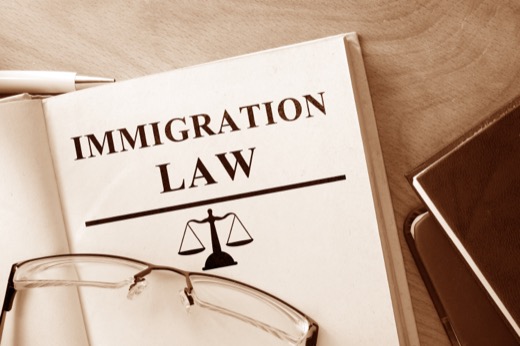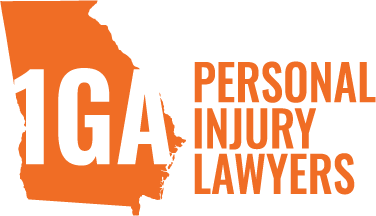- Personal Injury
Calculating personal injury damages can be tricky and involves many variables: medical bills, lost wages, pain and suffering, and future losses. Whether you were hurt in a car accident, medical malpractice, or someone else’s negligence, understanding how it’s calculated is key to getting a fair settlement.
In this post, we’ll go through the process of calculating personal injury damages in Georgia and why you need an experienced personal injury attorney in Columbus to assist with calculating damages and determining personal injury compensation.
How to Calculate Personal Injury Compensation
Calculating personal injury compensation can be complicated. However, there are two main ways personal injury lawyers do it: the multiplier method and the per diem method. Each method has its way of evaluating how injuries affect a person’s life.
Multiplier Method
The multiplier method is a common way attorneys calculate personal injury compensation. This method involves taking the total of economic damages (medical bills and lost wages) and multiplying it by a number. That number is usually between 1.5 and 5, depending on the severity of the injuries and how they affect the person’s life.
For example, if a person has $20,000 in economic damages and the multiplier is 3 because of severe pain and suffering, the total pain and suffering damages would be $60,000. This method is simple and easy for clients and lawyers to understand the settlement amount.
Per Diem Method
The Per Diem Method calculates damages by assigning a daily value to the person’s pain and suffering. That value is multiplied by the number of days the person is in pain because of the injury.
For example, if an attorney determines the person’s pain and suffering is worth $100 per day and the person is in pain for 180 days, the total pain and suffering damages would be $18,000. This method can give a better picture of how pain and suffering affect a person over time and is especially useful in cases of ongoing medical treatment or long-term recovery.
What Affects Personal Injury Compensation?
Personal injury compensation can be affected by multiple factors. Medical expenses are a critical factor in calculating compensation for personal injury claims. Many factors go into the total amount. Knowing these factors can help you build a stronger personal injury case. Here are the main elements that affect personal injury compensation:
Severity of Injuries
The extent of your injuries is a big factor in calculating damages. Severe injuries (fractures, traumatic brain injuries) generally mean increased personal injury compensation. Minor injuries mean lower damages. Insurance companies review medical records and treatment history to determine the severity of your injuries.
Impact on Daily Life
Your ability to do daily activities can impact personal injury compensation. If your injuries limit your mobility or prevent you from working, hobbies, or taking care of your family, you may be entitled to more damages. The more your daily life is disrupted, the stronger your case for personal injury compensation.
Career and Earning Capacity
Injuries can affect your career and earning potential. If your injuries prevent you from working or force you to take a lower-paying job, this can increase your personal injury compensation. Lost income and reduced future earnings are key factors attorneys consider when calculating damages.
Family Life and Distress
Injuries affect not just the person but also their family members. Emotional distress caused by the injury can cause strained relationships and changes in family dynamics. If your injuries have caused significant distress to your loved ones, this can be added to your personal injury compensation.
Emotional and Mental Distress
In addition to physical injuries, emotional and mental distress is a big factor in personal injury claims. Conditions like anxiety, depression, or post-traumatic stress disorder (PTSD) can develop after an accident. Documenting these emotional impacts is key to a successful personal injury claim. Your attorney can help gather evidence such as therapy records or personal statements to support your case.
Economic Damages
When calculating personal injury damages, economic damages are a big factor. These are the financial losses a person incurs as a direct result of their injuries. Knowing these components can help you calculate the value of your personal injury case. A personal injury settlement calculator can be a useful tool to estimate the potential value of personal injury claims.
Medical Bills
Medical bills are the biggest part of economic damages. This includes all costs related to medical treatment for injuries from an accident. Common expenses may include:
- Emergency Room Visits: Costs of initial treatment.
- Hospitalization: Charges for overnight or longer.
- Surgical Procedures: Fees for any surgeries.
- Rehabilitation: Costs for physical therapy or ongoing medical care.
- Medications: Prescription and over-the-counter drugs related to recovery.
Keep all medical bills and treatment records to support your claim.
Lost Income
Injuries can prevent you from working, resulting in lost income. This includes not just the income you missed during your recovery but also potential future earnings if your ability to work is affected long-term. When calculating lost income, consider:
- Current Salary: The amount you would have earned during your recovery period.
- Bonuses and Benefits: Any additional compensation you would have received.
- Future Earning Potential: If your injuries impact your career long-term, estimate the potential lost income.
Keep records of your work history and any correspondence with your employer to support your lost income claim.
Property Loss
If your personal property was damaged in the accident, this is also economic damage. This can include:
- Vehicle Repairs: Costs to fix your car or other damaged property.
- Replacement Costs: If your property is beyond repair, the cost to replace it.
- Diminished Value: If your property has lost value because of the accident, you may be entitled to damages for that loss.
Get estimates and receipts for repairs or replacements to support your property damage claim.
Comparative Fault Laws
Knowing comparative fault laws is important when filing a personal injury claim in Georgia. Understanding personal injury law is crucial in these legal proceedings, as it determines how damages are apportioned based on the percentage of fault of each party involved in the accident. Georgia is a modified comparative fault state that applies to personal injury cases.
Modified Comparative Fault
Under Georgia’s modified comparative fault rule, your damages are affected by your percentage of fault in the accident. If you are less than 50% at fault, you can still recover damages. But your total damages will be reduced by your percentage of fault. For example, if you have $100,000 in damages but are 30% at fault, your recovery would be limited to $70,000.
This system holds everyone accountable while still allowing victims to get compensation even if they are partially to blame. But if you are 50% or more at fault, you will not be able to recover any damages. So it’s important to know the details of your case and the other parties involved.
Comparative Fault Implications
The implications of modified comparative fault can be big for personal injury victims. Insurance companies use this rule to reduce payouts. They may argue the injured party is more at fault to decrease their liability. So get as much evidence as you can to support your claim and show the other party was negligent.
In Georgia, you must prove the at-fault party was negligent. This means showing they owed you a duty of care, breached that duty and their actions caused your injuries. Having an experienced personal injury lawyer can help you navigate these issues and build your case.
Legal Considerations
When filing a personal injury lawsuit in Georgia, there are two key factors to consider: the methods used by lawyers to determine compensation for victims, including no cap on pain and suffering damages, and the evidence in your case.
No Cap on Pain and Suffering
In Georgia, there is no cap on the amount you can recover for pain and suffering damages. So if you can show the extent of your suffering and how it has affected your life, you could recover a lot. This is especially important for serious injuries where emotional trauma and physical pain can impact your daily life.
Evidence
Evidence is key to your personal injury claim. The more evidence you have, the stronger your case will be. Here are some types of evidence:
- Medical Records: Your injuries, treatments, and ongoing medical care are documented.
- Witness Statements: Family, friends, or coworkers about how your injuries have impacted your daily life.
- Expert Opinions: Medical professionals about the long-term effects of your injuries.
Consult With an Experienced Columbus Personal Injury Lawyer ASAP!
If you or a loved one has been injured due to someone else’s negligence, navigating the complexities of a personal injury settlement can feel overwhelming. At 1Georgia, our dedicated team is here to guide you every step of the way. Whether you’re dealing with medical bills, lost wages, or pain and suffering, we’ll fight tirelessly to ensure you receive the maximum compensation you deserve.
Contact us at 678-635-9939 for a free claim review today!









